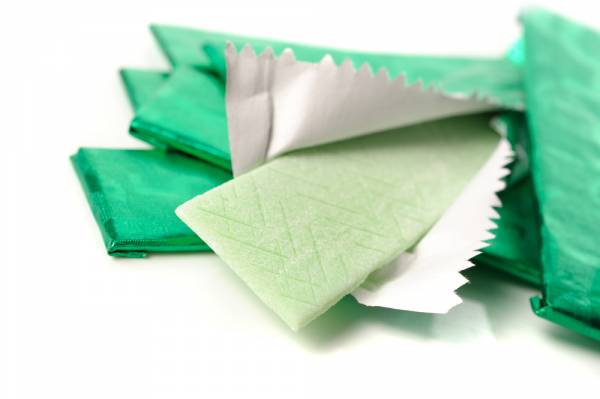Sugar alcohols are the sugars in alcohol, right? Wrong actually, the term “sugar alcohol” can be quite misleading as they are neither a sugar nor an alcohol. Confused yet? Allow me to explain then.
Sugar alcohols are the sugars in alcohol, right? Wrong actually, the term “sugar alcohol” can be quite misleading as they are neither a sugar nor an alcohol. Confused yet? Allow me to explain then. Sugar alcohols are in most “sugar free” and “diet” products and once you know what to look for you will be amazed at just how many products contain some form of them. They are sweet to the tongue and are poorly digested by the body, making them what manufacturers believe to be the perfect type of sweetener. Unfortunately for some unlucky people these sugar alcohols can cause all sorts of bodily upsets.
What Are Sugar Alcohols
A sugar alcohol is also know as a polyol and can be classified as a carbohydrate. Sugar alcohols naturally occur in many fruits and vegetables, but are most widely consumed in sugar-free and reduced-sugar foods. The sweetness of sugar alcohols varies from 25% to 100% as sweet as table sugar (sucrose). The chemical structure of sugar alcohols is a hybrid between a sugar molecule and an alcohol molecule, hence the name, but they are neither one nor the other. Although included in most sugar free products, sugar alcohols do have a caloric value. This value is generally half that of sugar and is very low on the glycemic index, which is great for controlling blood sugar levels. Sugar alcohols also don’t ferment in the mouth when coming into contact with oral bacteria, which is another plus for dealing with oral health.
There are several types of sugar alcohols. When you look at a food label the below are all sugar alcohols you may see:
- Sorbitol
- Xylitol
- Erythritol
- Isomalt
- Lactitol
- Hydrogenated starch hydrolysates
- Maltitol
- Mannitol
I bet you now realize you have seen some of these in your food products. Sugar alcohols are found in a vast array of items like candy, gum, ice cream, baked good, and fruit spreads. They can also be found in oral hygiene products like toothpaste, mouthwashes and breath mints; medicines like cough syrups and lozenges; and most importantly they can be found in lots of sports nutrition products like protein powders, pre-workout supplements, and low-carb products.
Why Use Sugar Alcohols
 The reason sugar alcohols are used is that they are slowly and incompletely absorbed in the body. Once they are absorbed they use very little to no insulin to convert to energy. Not all of the sugar alcohol passes into the bloodstream. The rest passes through the small intestine and into the large intestine.
The reason sugar alcohols are used is that they are slowly and incompletely absorbed in the body. Once they are absorbed they use very little to no insulin to convert to energy. Not all of the sugar alcohol passes into the bloodstream. The rest passes through the small intestine and into the large intestine.
One major use of sugar alcohols is in the management of diabetes, primarily to maintain close to normal blood sugar levels. The reason for this is because the sugar alcohols are incompletely absorbed, meaning they don’t initiate the same insulin response as they would if someone had consumed regular sugar. This allows for quite a few products to be marketed to diabetics, but as with anything your doctor should always be consulted if you are to add sugar alcohols into your daily diet.
Tooth decay is a major problem in regards to excessive sugar consumption, but with sugar alcohols this is not a problem, as the bacteria in the mouth don’t act upon them. Xylitol has even been found to inhibit oral bacteria. Due to this, manufacturers of chewing gums and sugarless mints include xylitol in their products as a sweetener.
Sugar alcohols are also used in reduced calorie or low carbohydrate diet foods. This is because they are used to replace the more energy dense carbohydrate sugars in the diet, thus lowering the total energy/calories of a food product. This is useful in the management of weight control and can help people trying to lose weight. Sugar alcohols can also be used to control the glycemic index of a food by lowering the carbohydrate rate. It should be noted that overconsumption of anything, even a product containing a sugar alcohol can possibly lead to weight gain.
CALORIES PER GRAM SUGAR ALCOHOL
3.0 calories per gram Hydrogenated starch hydrolysates
2.6 calories per gram Sorbitol
2.4 calories per gram Xylitol
2.1 calories per gram Maltitol
2.0 calories per gram Isomalt
2.0 calories per gram Lactitol
1.6 calories per gram Mannitol
0.2 calories per gram Erythritol
Side Effects of Sugar Alcohols
 In some people sugar alcohols can cause bloating, flatulence, and diarrhea. This is because the sugar alcohol is not completely absorbed in the digestive system and this causes fermentation to occur in the intestines. Due to this fermentation, gas is produced and can cause gastrointestinal distress. This is the reason why products that could be over consumed, like gum and mints, must have a health statement on the label that says, “Excess consumption may have a laxative effect.” It must be noted that even if you are not sensitive, over consumption can cause abdominal discomfort ranging from cramps to diarrhea and dehydration.
In some people sugar alcohols can cause bloating, flatulence, and diarrhea. This is because the sugar alcohol is not completely absorbed in the digestive system and this causes fermentation to occur in the intestines. Due to this fermentation, gas is produced and can cause gastrointestinal distress. This is the reason why products that could be over consumed, like gum and mints, must have a health statement on the label that says, “Excess consumption may have a laxative effect.” It must be noted that even if you are not sensitive, over consumption can cause abdominal discomfort ranging from cramps to diarrhea and dehydration.
Fluctuating blood sugar can also be of concern. Even though these sugar alcohols have very low glycemic impact and low carbohydrate energy density, consumed in large enough quantities they can cause fluctuations in blood sugar levels. This needs to be monitored if these products are to be consumed.
As with anything side effects will vary from person to person, some will have an instant reaction while others may never notice anything at all. The status of someone’s overall health will ideally relate to that persons degree of sensitivity. This is especially true to any one that has any type of gastrointestinal condition like irritable bowel syndrome, in these instances sugar alcohols should be consumed sparingly if at all to reduce the chances of causing gastrointestinal discomfort.
I think with the ever-increasing amount of products available on the market today that these food items do have a place on the shelves. But if we look at our diets realistically, consuming sugar free or low carbohydrate items shouldn’t be necessary or at the very least should only make up a very small portion of the foods we consume. Ideally we should be looking to consume natural, whole foods to fuel our bodies. That way, regardless of the pros or cons of sugar alcohols, the majority of us wouldn’t have to concern ourselves with that ever foreboding laxative effect.
Photos courtesy of Shutterstock.






